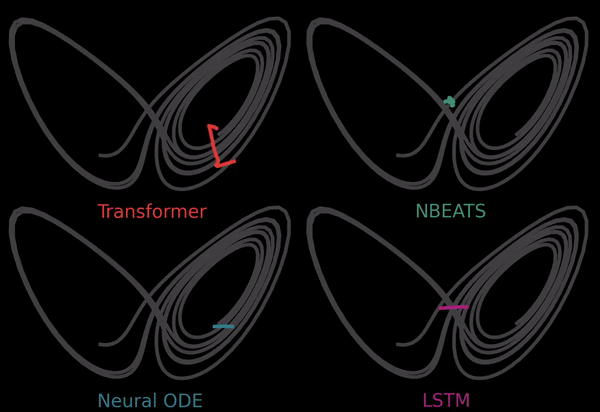The science of predicting chaotic systems lies at the intriguing intersection of physics and computer science. This field delves into understanding and forecasting the unpredictable nature of systems where small initial changes can lead to significantly divergent outcomes. It’s a realm where the butterfly effect reigns supreme, challenging the traditional notions of predictability and order.
Central to the challenge in this domain is the unpredictability inherent in chaotic systems. Forecasting these systems is complex due to their sensitive dependence on initial conditions, making long-term predictions highly challenging. Researchers strive to find methods that can accurately anticipate the future states of such systems despite the inherent unpredictability.
Prior approaches in chaotic system prediction have largely centered around domain-specific and physics-based models. These models, informed by an understanding of the underlying physical processes, have been the traditional tools for tackling the complexities of chaotic systems. However, their effectiveness is often limited by the intricate nature of the systems they attempt to predict.









Comments are closed.